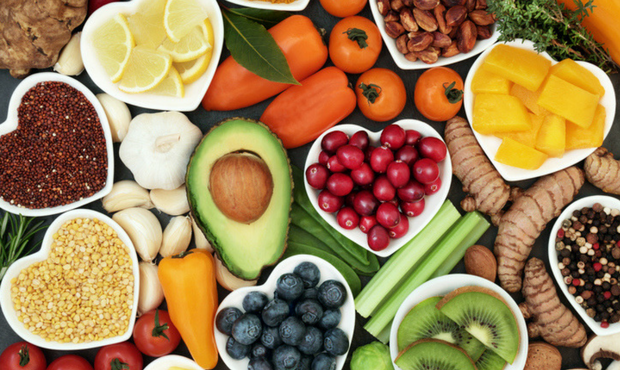
The benefits of a vegetarian diet are plentiful, but some athletes worry that a meat-free diet may lack the important nutrients they need to keep their bodies fueled. We spoke with Stepfanie Romine, an ACE-certified health coach, fitness nutrition specialist and co-author of "The No Meat Athlete Cookbook" about the reality of fueling a runner's body on a vegetarian diet.
There's plenty of protein in a vegetarian diet.
Our bodies use protein to build and repair tissue, an essential task for a runner's body. One of the most common myths about eating a vegetarian diet is that it lacks protein. "Most food in the plant world, with rare exception, contains fat, carbohydrates and protein," Romine explains. "Even kale and broccoli have plenty of protein in them."
Kale and broccoli contain a lot of protein. The nutrient accounts for 34 percent of the calories in broccoli and 35 percent of the calories in kale. In spinach, that number is over 50 percent. Chickpeas, lentils, soybeans, nuts and whole-wheat pasta are also packed with protein.
A vegetarian diet will help your body repair itself faster after a hard run.
When you eat a balanced vegetarian diet, you're consuming loads of micronutrients. Romine says when you take in micronutrients, your body gets plentiful amounts of the raw materials it needs to repair and protect itself. "If you're an athlete, your focus is on repairing your body after a hard workout," says Romine. "If you're eating a nutrient dense diet, you need less time to recover from your workouts." When Romine switched to a plant-based diet, she noticed her joints hurt less and her hard runs didn't take their toll on her in the days that followed. "I felt like I could bounce back faster," she says. "That's pretty big for me because I'm not a natural athlete, so any edge I can get is helpful."
Runners can get enough calories on a plant-based diet.
Some serious runners worry that a vegetarian diet won't provide the calories they need to fuel their body in a given day. It's true that if you're only eating fruits and vegetables, it would be hard to consume enough calories, but a vegetarian diet is much more complex than that. "If you're eating a traditional vegetarian diet, you have eggs and cheese to lean on," says Romine, though she notes that cheese should be consumed sparingly because it can be inflammatory. Whole grains, legumes, nuts, seeds and avocado are all calorically dense vegetarian foods. When you eat healthy fats like those listed above, "you're going to be able to hit your calorie needs pretty quickly."



